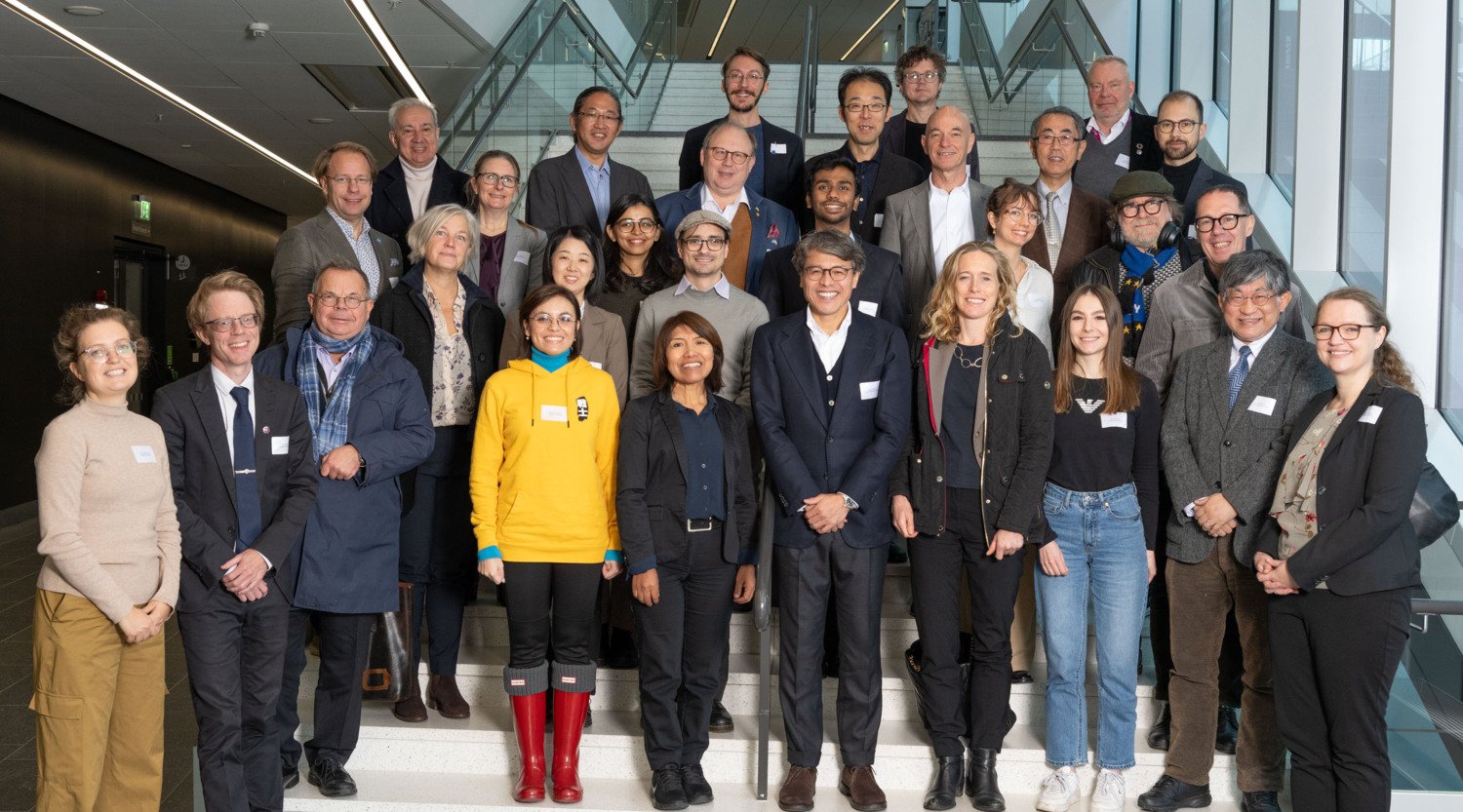Researchers from Stockholm Trio and the University of Tokyo met to strengthen knowledge for future society
Marking the seventh year of the strategic partnership, the Stockholm Trio–UTokyo Workshop gathered researchers from Sweden and Japan three days in October 2024 to deepen interdisciplinary collaboration on shared challenges in biomaterials, urban change, ageing, robotics and sustainability education.
The Stockholm Trio-UTokyo Workshop – Increasing Knowledge for Future Society - was hosted by Karolinska Institutet on October 23 to October 25. It was the seventh workshop to be held within the framework of the collaboration. Keynote presentations addressed pressing topics such as precision medicine, decarbonisation, energy policy and climate change.
The hybrid workshop took place simultaneously at Karolinska Institutet Campus Solna and at the University of Tokyo’s Hongo Campus. The majority were on-site participants in Solna, including several researchers from the University of Tokyo who had travelled to Sweden to attend the workshop. In total, there were over 200 participants that joined in Stockholm and Tokyo.
The workshop featured five thematic areas
1. Biomaterials – subdivided into Nancellulose and Bio-Nanomaterials for Therapeutics; 2. Brain, Society and Ageing; 3. Sustainable Futures Through Education; 4. Urban Change and Reconstruction and 5. Robotics in Biomedical Applications. Most of the themes were given as hybrid workshops to allow broad participation from both countries. A joint lunch was also organised with participants from both the workshop and the Stockholm Trio for Sustainable Action’s Seminar on Interdisciplinary research and education for sustainable development.
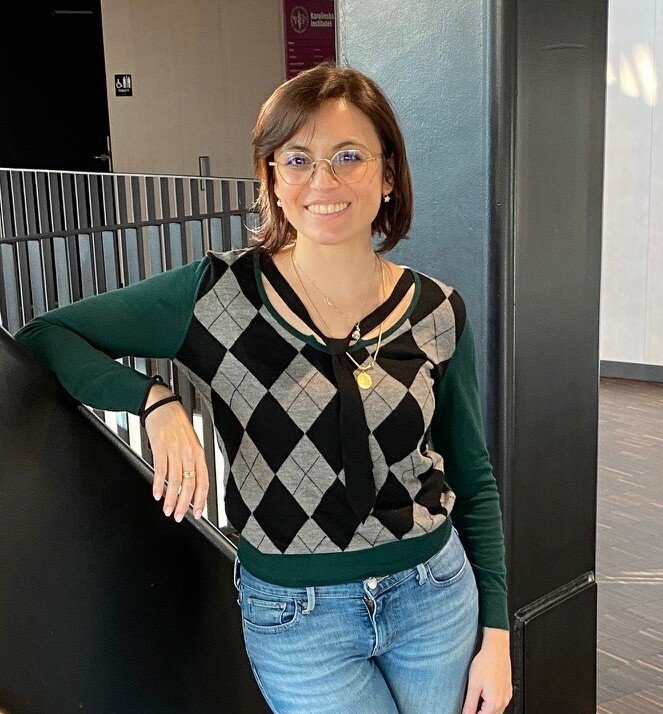
For Elisabetta Nocerino, Italian Post Doc at Stockholm University this was the first Stockholm Trio – U Tokyo Workshop. She attended the nanocellulose theme and commented on the value of interdisciplinary workshops:
“New ideas are created at the border between cultural and disciplinary differences. In the workshop today we discussed how we, by mimicking nature´s efficient structures, can design materials with enhanced properties, leading to more sustainable and resilient solutions.”
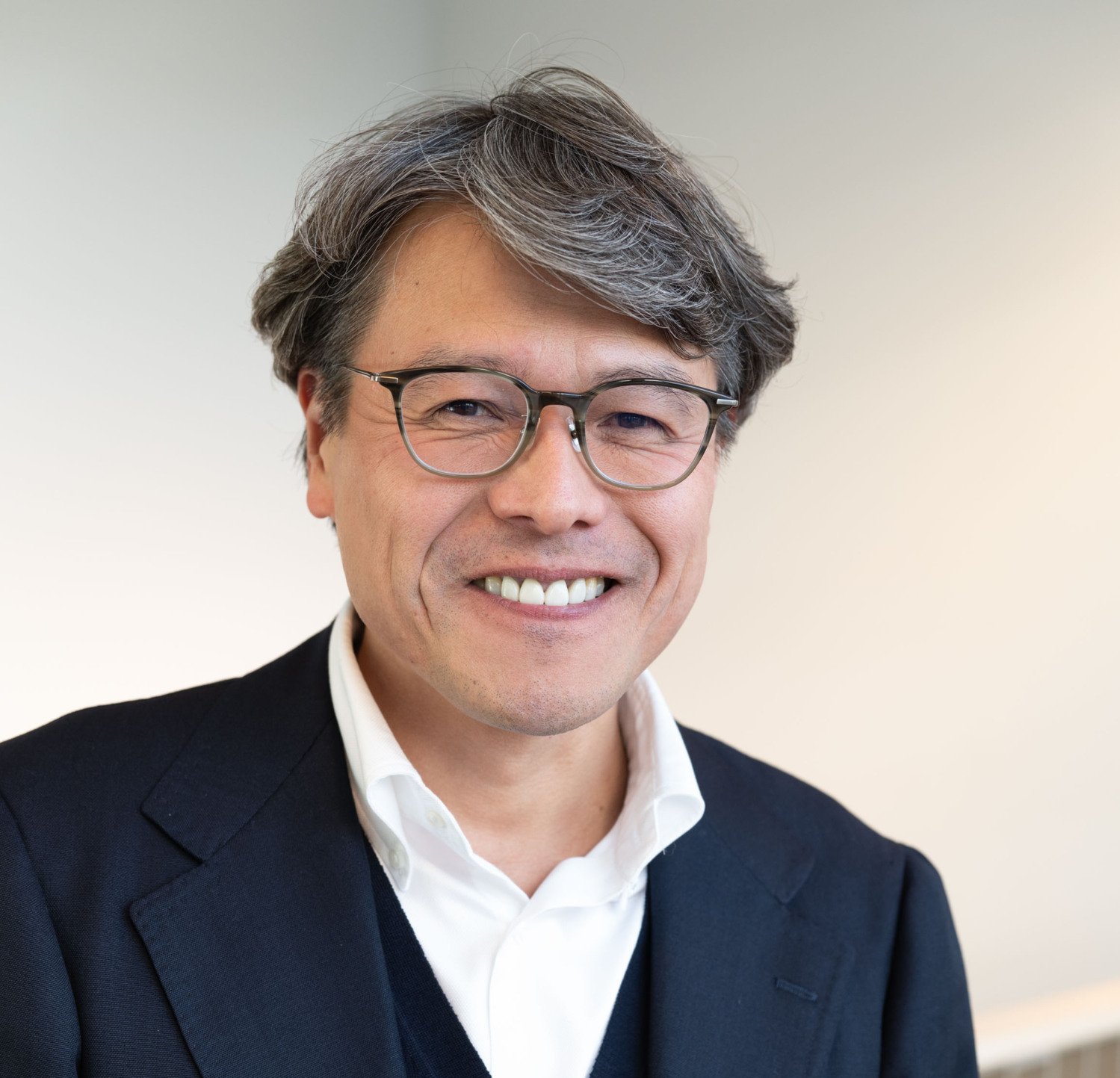
Yuto Kitamura, Professor of Education at the University of Tokyo and member of the Stockholm Trio – UTokyo Steering Committee, has been involved in the partnership since its inception. He emphasised the importance of the partnership for the University of Tokyo.
“Sweden and Japan share common challenges, such as ageing and how we can deal with new technologies in a rapidly changing world. But there are also many differences between our societies which can help to open our eyes to new ideas and help drive change.”
Professor Kitamura argued that students need to develop transversal skills, apart from the specialised knowledge they gain in their different educations.
“One such skill is gaining a deepened understanding of the global challenges that we all face and that are essential for humanity’s long-term survival. Intercultural competencies are also more important than ever in an increasingly complex, polarised and conflict-ridden world.”
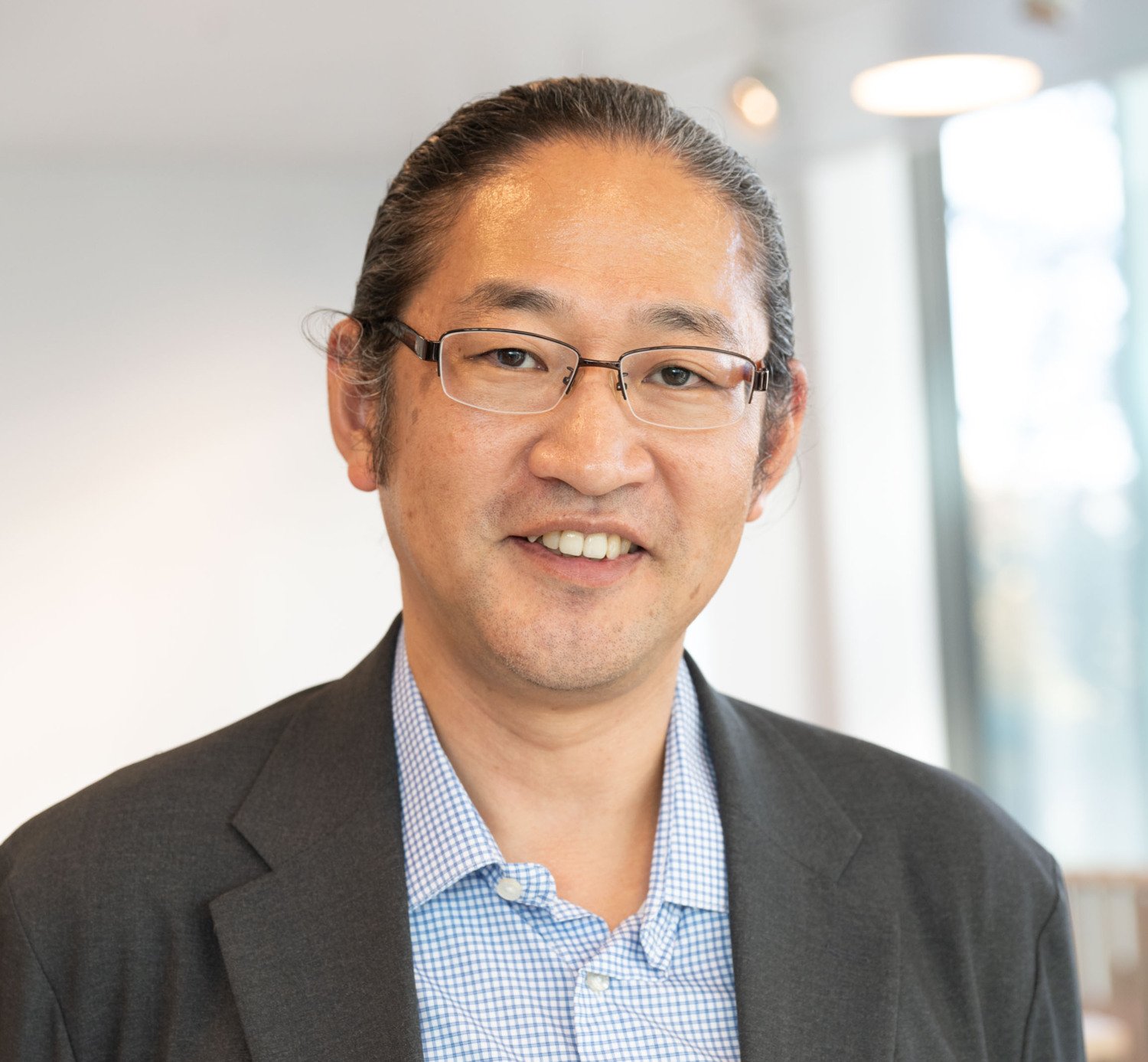
Taisuke Tomita, Professor at the Graduate School of Pharmaceutical Sciences at the University of Tokyo, conducts research on dementia and has also collaborated with researchers at Karolinska Institutet and Stockholm university since the inception of the strategic partnership.
“The partnership is very valuable since it provides us with opportunities to meet in person. During today’s workshop, we discussed the social aspects of dementia and compared the cultural differences between our countries. It would be wonderful if the partnership could also could provide collaborative grants to further strengthen collaboration between our universities.”
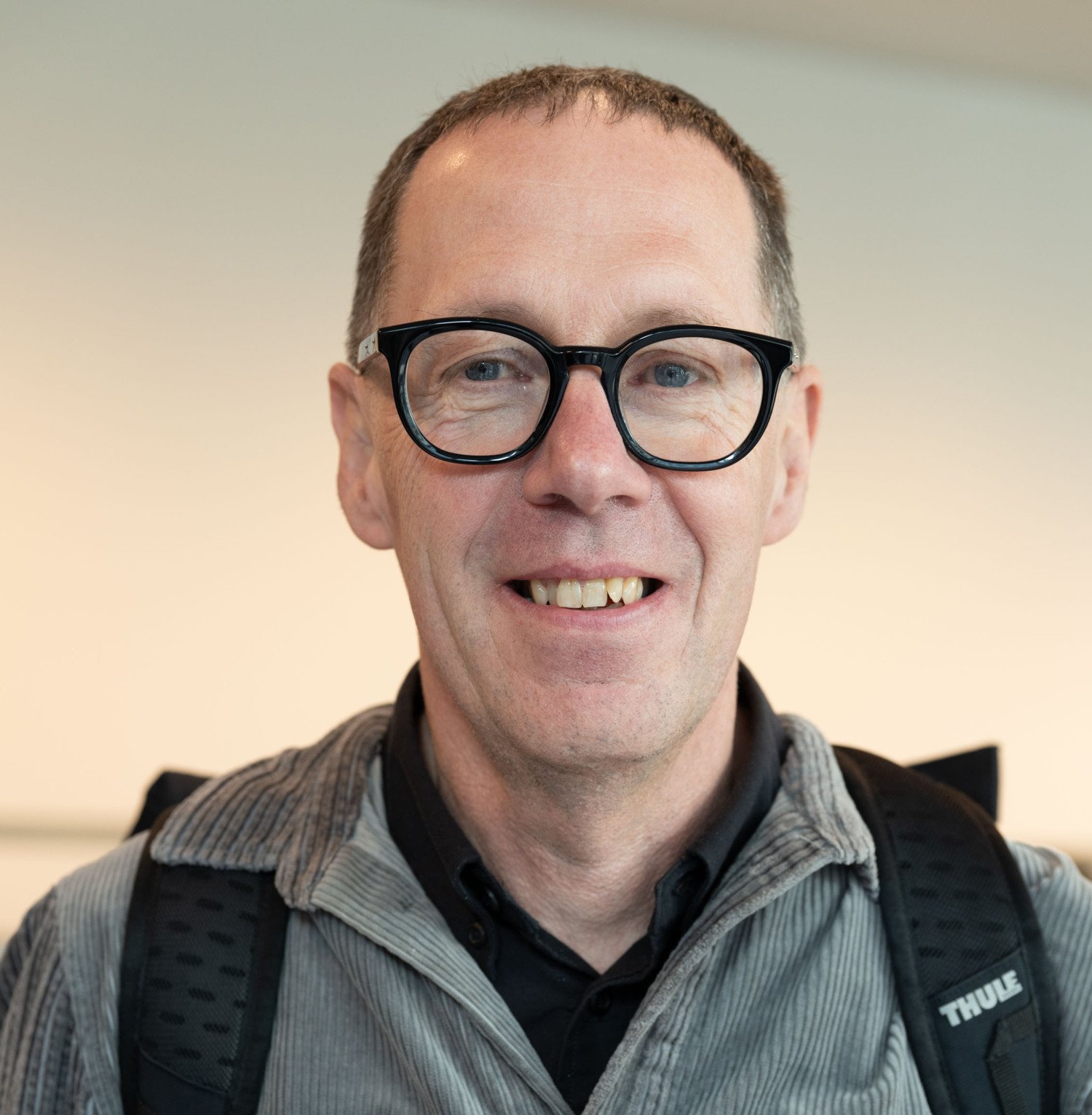
Håkan Fischer, Professor, Department of Psychology, Stockholm University, is also a member of the Stockholm Trio - UTokyo Steering Committee
“I am very interested in collaborating with Japan within the framework of my research on interpersonal communication, as I would like to study how cultural differences are reflected in how we interact with each other. The partnership with the University of Tokyo has both opened up opportunities for cooperation with Japan and created connections between the three universities within the Stockholm Trio in a way that did not exist before.”
Professor Fischer is looking forward to meeting with colleagues from the Stockholm Trio and the University of Tokyo at a workshop, again soon.
